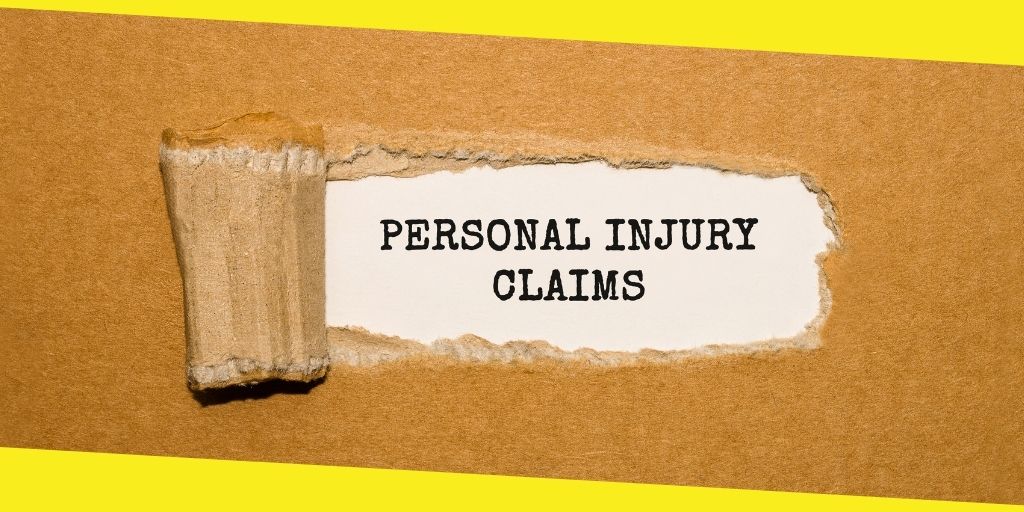What Differentiates Personal Injury Claims From the Others?
This post was last updated on May 17th, 2023
In personal injury claims, you may be able to retrieve your loss due to bodily harm. Damages taken as a result of accidental negligence or behaviour is what differentiates personal injury claims from intentional crime-related claims. As negligence is unintentional on most occasions, in personal injury claims, damages may be awarded to parties at fault in a limited extent. Personal injury claims are notorious for being complex claims, however, the process can be simplified if necessary, attention is given. Those who have a valid reason to make a claim is likely to seek clear legal advice as the legal terms might sound baffling and taking necessary steps while sustaining these injuries are demanding. Here you can find best lawyer at Demas Law Group homepage.

Contents
TogglePersonal Injury Claim
There are many forms of personal injury claims. The most common type is automotive accidents, such as car and truck accidents, wherein 1.35 million people die in road accidents worldwide each year. Aside from automotive accidents, any injury arising from omissions or acts that causes harm to another party becomes eligible for a personal injury claim under tort law.
Consider a scenario where a customer falls or slips on a business establishment, like a restaurant. In such cases, a claim for compensation can be filed. The property owner or business owner is responsible for ensuring the establishment is safe for customers. So, any accident within the property makes the victim eligible for compensation, covered by property liability insurance.
This rule also applies to someone bitten by a dog in a rental property or a victim of assault. Similarly, employees who sustain an injury at work have the right to file a claim, typically covered under the worker’s compensation insurance. Medical malpractice and nursing abuse are also considered personal injury cases.
A good personal injury lawyer understands the uniqueness of each lawsuit, with influencing factors depending on the setting, the nature of the injury, and the parties involved. It’s beneficial to select a personal injury attorney with experience in cases similar to yours. Using the example of a car accident, an ideal choice would be a lawyer who has a track record of winning automotive-related cases.
What law protects injured individuals?
In Australia, Personal Injury Law protects injured individuals from the harm taken by a wrongful and negligent act or behaviour. The term ‘’personal injury’’ is being used to define physical, psychological and emotional harm, which are compensable in compliance with the relevant Act.
In Personal Injury Laws, during the judgements, it must be proven that the victim is suffering the consequences of the other party’s wrongful actions or omissions even if the victim has taken sufficient care to avoid major injuries. This situation is stated as the duty of care, which stands for a legal obligation to act in a sense of responsibility and awareness to protect other civilians from any harm. Duty of care can be defined as an individual’s share to contribute to the public safety however, it is an obligatory duty to perform and if failed, the party at fault may face a compensation claim.
On what occasions one cannot make a claim?
While performing activities which involve a natural risk, a reasonable person is likely to be aware of the potential dangers. If the risk was obvious to the victim, the situation may be excluded from the extent of personal injury laws. In personal injury claims, damages may be awarded if someone else’s lack of care caused harm to the others.
No fault scheme in personal injury claims
Although the majority of the personal injury claims are judged by taking the negligence into consideration, in motor vehicle accidents and workers compensation claims, those who are at fault may also be awarded compensation to a limited extent. However, in motor vehicle accidents, the damages that may be awarded to the party at fault will vary and be available for a limited time. Parties at fault can receive income support payments and medical expenses. On the other hand, common law damages (lump sum payment) may not be awarded to the party wholly at fault.
In Australia, workers sustaining injuries may benefit from weekly payments, back to work assistance payments, medical expenses and domestic care payments regardless of fault; as well as lump sum payment if the necessary criteria which are designed by the relevant State’s laws, are met.
How to make a personal injury claim?
The difference between a claim and a lawsuit is that the victim will demand compensation from the insurer prior to carry the case to the court. The court process can be bypassed as the insurer can accept the liability. Throughout the whole nation, in Australia, doctors are required to be insured by medical indemnity insurer either by themselves or by their employers. For this reason, victims of medical malpractice cases can make a claim from the relevant insurer of the professional. A similar procedure applies to motor vehicle accidents as well. In Australia, traffic insurance which is named as Compulsory Third Party Insurance is obliged to have. If missing, motor vehicles may not be registered, and the owner of the vehicle will be charged for violating the laws. However, the victim can still make a claim through the nominal fund, which is supported by the Australian government.
Recommended For You
The Benefits of Hiring A Real Estate Lawyer When Buying A House
Most Inside
Most Inside offers high-quality recommendations and valuable updates to enhance all aspects of your life, providing premium guidance and enriching experiences.




